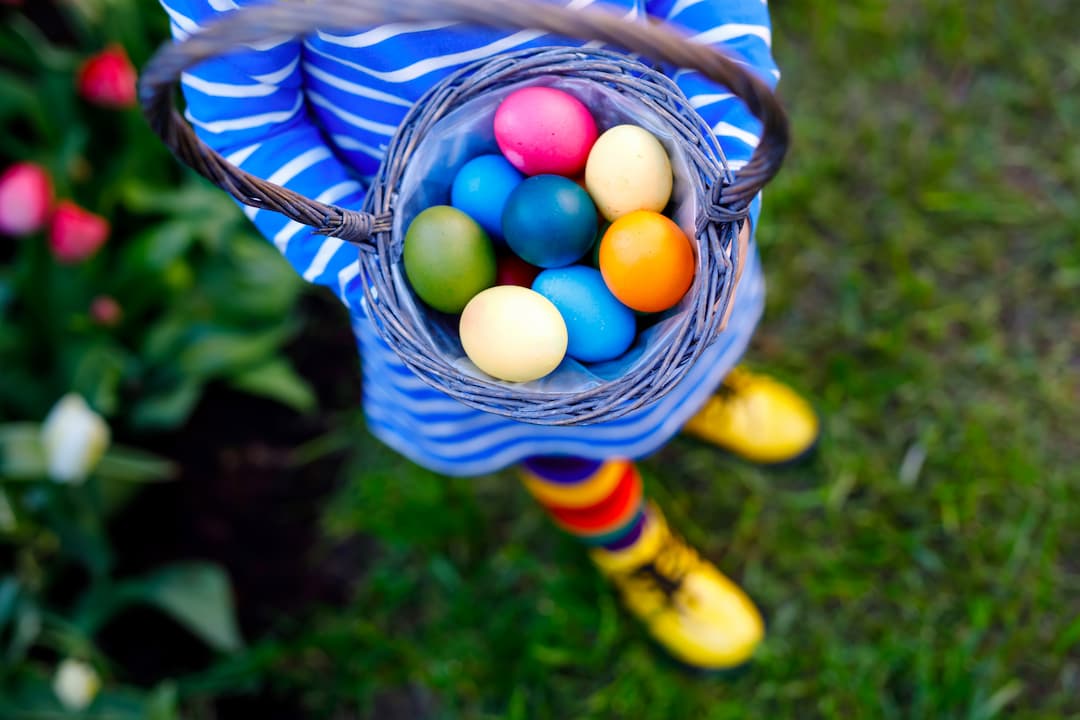Eggs-cellent ideas for a sustainable Easter

(Updated March 2023)
Preparing for the Easter festivities can be fun but also stressful, particularly when faced with shopping center chaos while you’re trying to reduce your environmental impact. We’ve hatched a plan to help you celebrate more sustainably, mind the puns.
Feast Mode
Whether you’re planning a family roast lunch, splashing out on seafood, or preparing vegan delicacies, it’s important and empowering to understand the carbon footprint of what you eat. Thoughtfully balancing meat and veggie dishes can substantially reduce the impact of your meal. A little less roast lamb, and a few extra locally sourced vegetables can make a serious difference.
Reality Choc
Australians love chocolate and on average eat over of 30kg of chocolate each year. Chocolate eggs, bunnies, and bilbies are arguably (definitely) the best part of Easter but do you know where your sweet treats come from? Most (but not all) brands have been taking significant steps to improve supply and production and it’s becoming far easier to check your favourites and identify the good eggs from the rotten. Also look out for ethically produced, plant-based treats.
Avoid the Eggs-cess
When selecting Easter confectionery for yourself or loved ones, consider the impact of excessive or extravagant packaging. Over the top or unnecessary individual plastic wrappers can add significant landfill. Classic foil wrapping is very recyclable but ensure wrappings are balled together and disposed of properly.
Egg-squisite Activities
If you can’t source easter eggs to meet your own ethical standards, why not create your own eggs! Try decorating real boiled eggs (free-range of course) in a traditional style with natural dyes or create your very own chocolates using reusable molds. Alternatively, impress your relatives by baking your own delicious hot cross buns.
Egg-xibit Reusable Ornaments
Easter isn’t something you usually celebrate just once, so if you’re the decorative type it’s beneficial to invest in the right type of ornaments. Avoid plastic or gimmicky items that won’t last and consider shopping for preloved decorations or weaving your very own baskets.
Hop on a Bike
If you’re traveling for Easter, consider public transport, carpooling with friends or family, cycling or even walking to your destination. This reduces your personal carbon footprint and helps to ease traffic congestion on the roads.
Discuss Respectfully
Easter is often a rare opportunity to spend quality time with loved ones, unfortunately this can sometimes lead to heated discussion around sustainability (among other things). Helping family members understand your climate concerns may at times seem futile but it is possible. Scientists have even proven children can increase their parents’ level of concern about climate change. It’s important to be patient, polite and allow others to be heard before laying out the facts.
